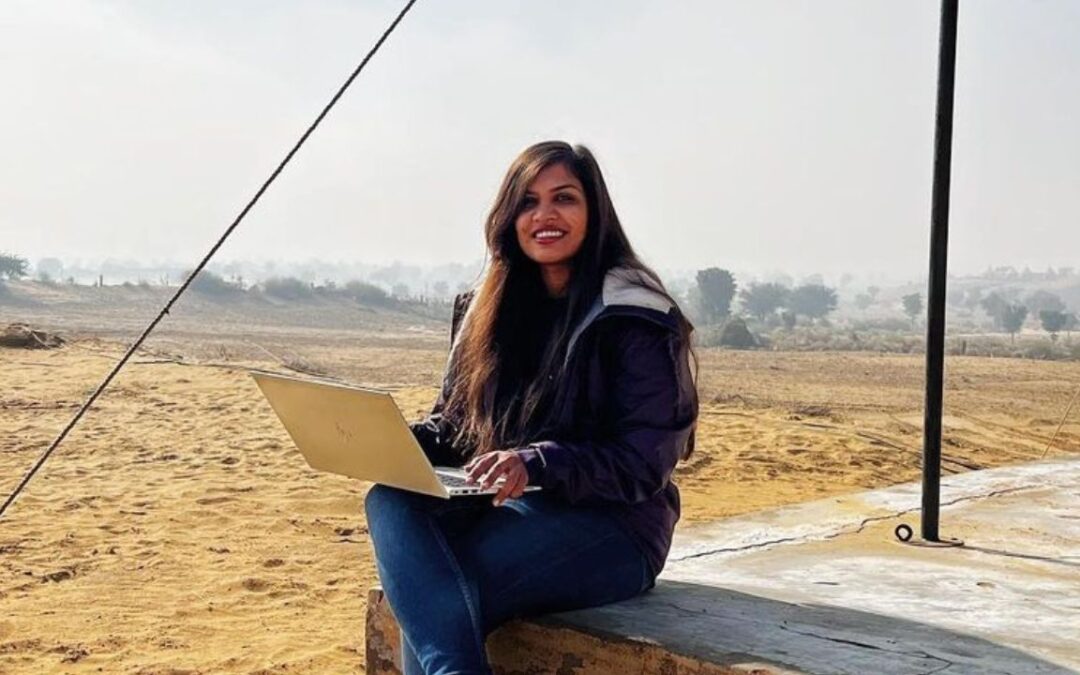Whether you’re looking for a new job or just starting out in your career, the job-hunting process can get overwhelming. If you’re not sure what industries to start with, there are several jobs popular with digital nomads because they work well as remote careers. The most popular jobs for digital nomads are:
• Computer and IT
• Writing and Editing
• Digital Design
• Sales
• Business Consultation
• Marketing and Communications
• Public Relations
• SEO and Advertising
• E-Commerce
• Photography and Videography
• Social Media Management
• Administrative Support
• Online Education

Once you’ve narrowed down your niche or selected what career path you’re going to take, let’s start creating your profile.
First things first, you’re not starting from zero. Your skills in using Google Workspace and Microsoft apps are already technical skills! Include your social media knowledge, time management, and organizational skills and you have all the basic bases covered.
1. Create Your Resume & LinkedIn Profile
The first thing hiring managers ask for is a resume so it’s imperative you have one ready. A resume is a document containing your background, skills, and accomplishments.
A good resume is a one-page document that contains:
• Your full name
• Residence (not your full address)
• Contact details (email address and phone number)
• Heading statement or Professional Profile
• Educational background
• Experience (internships, previous employment, projects held)
• Certifications and accomplishments
At the same time, start building your LinkedIn account. A LinkedIn account is your online professional profile. Most employers ask for a LinkedIn profile with your resume. So just like your resume, fill your LinkedIn with your educational background and previous work experiences. Then connect with your college peers and past professional colleagues.
2. Go to Job Boards
When searching for jobs, online job boards are the first place people go.
There are several job boards online depending on the type of job you’re looking for. The great thing about job listing platforms these days is that they’re not just for job hunting but they also have secure payment channels for employers and employees.
If you’re a freelancer, you can create a profile on these platforms:
• Upwork
• Fiverr
• Designhill
• Toptal
• Behance
• Problogger (for writers)
• Authentic Jobs (for graphic designers)
• Awesome Web (for web designers and development)
If you’re looking to be hired by a company, create a profile on these websites:
• LinkedIn
• WeWorkRemotely
• FlexJobs
• RemoteOK
• Remote.co
3. Start Applying
Tailor your resume to the job post that you’re applying for by using the same keywords they use in the job post. This way, your resume will stand out and will be viewed first. However, it should still reflect your skills and background.
Tip: If you find a job opening that fits your profile well but doesn’t fit into all of the job descriptions, push through with the application. You don’t need to have all the boxes checked, just most. You can learn other things while working.
Most job posts say “at least 1-year experience” in the requirements. Do not be discouraged by this especially if you fit all their criteria in the job description. Most hiring managers consider internships, volunteer work, and leadership positions held in college. So still push through with your application!

Pro-Tip:
The trick to landing your first job is to apply to as many job openings as you can. The reason behind this is that many job seekers are applying for the same job opening. So the more job applications you send, the higher your chances are of getting hired.
Also, if you hear from more than one hiring manager, keep channels open. The more options you have to choose from, the better. Which company do you like better? Which company offers a higher salary? Which company policies work best for you?
4. Nail the Job Interview
Before any interview, it’s good to look up and research the company you’re applying for–its achievements, vision, mission, and goals. Then align this with your skills and what you can contribute to the company. This isn’t explicitly asked in job interviews but it comes up so it’s good to prepare.
Then practice answering the basic interview questions like “Tell me about yourself”, “What are your strengths and weaknesses”, “Why did you decide to apply for this position”, and “Where do you see yourself in 5 years?”, etc. Practice answering these questions in front of the mirror so you don’t have to think about the answers on the spot.
Then review the job description to familiarize yourself to the position you’re applying for. Before the interview is over, ask questions to the interviewer like “What is expected from me in my first 90 days?”, etc.
Even if it’s just a zoom interview, you should still prepare a dress-up and look presentable. Find a spot with good lighting so your face is clearly shown in the camera. Use noise-canceling headphones and a microphone so you can communicate well with your interviewer.
5. Send a Thank You and Follow Up
Don’t forget to email your interviewer some thank you notes. Thank them for the opportunity and say you look forward to hearing from them.
If you don’t hear from them, politely follow up. It might be because the higher-ups haven’t signed the approval yet or because of paperwork backlogs.
However, if they don’t respond, don’t lose hope! Job hunting takes time and patience.

Get Digital and Upskill Yourself
While waiting to land your first remote job, familiarize yourself with the remote tools today. These include ClickUp, Zoom, Slack, Microsoft Office, Google Workspace, and more.
At the same time, read articles and watch tutorials on how to improve your skills in that field. There are thousands of resources you can find online for free. If possible, sign up for an online course to get the necessary certifications.
This is Your Start
Don’t worry about not having all the qualifications checked in the job postings. You will slowly build your credentials. Trust in your process. Everyone started somewhere, probably exactly where you are right now.
This is the start of your journey. Who knows, one day you may be giving career advice!





I’ve sent dozens of resumes to companies and not all of them are going to reply or follow up. That happens! Just keep applying.
Don’t overlook your LinkedIn profile. It’s your professional profile out there and most hiring managers ask for it. Update it when you get a promotion or get a new project.
Also, ask for recommendations from your colleagues and former clients on LinkedIn. It matters too!
I agree with upskilling yourself. There’s always something new to learn because everything keeps developing.